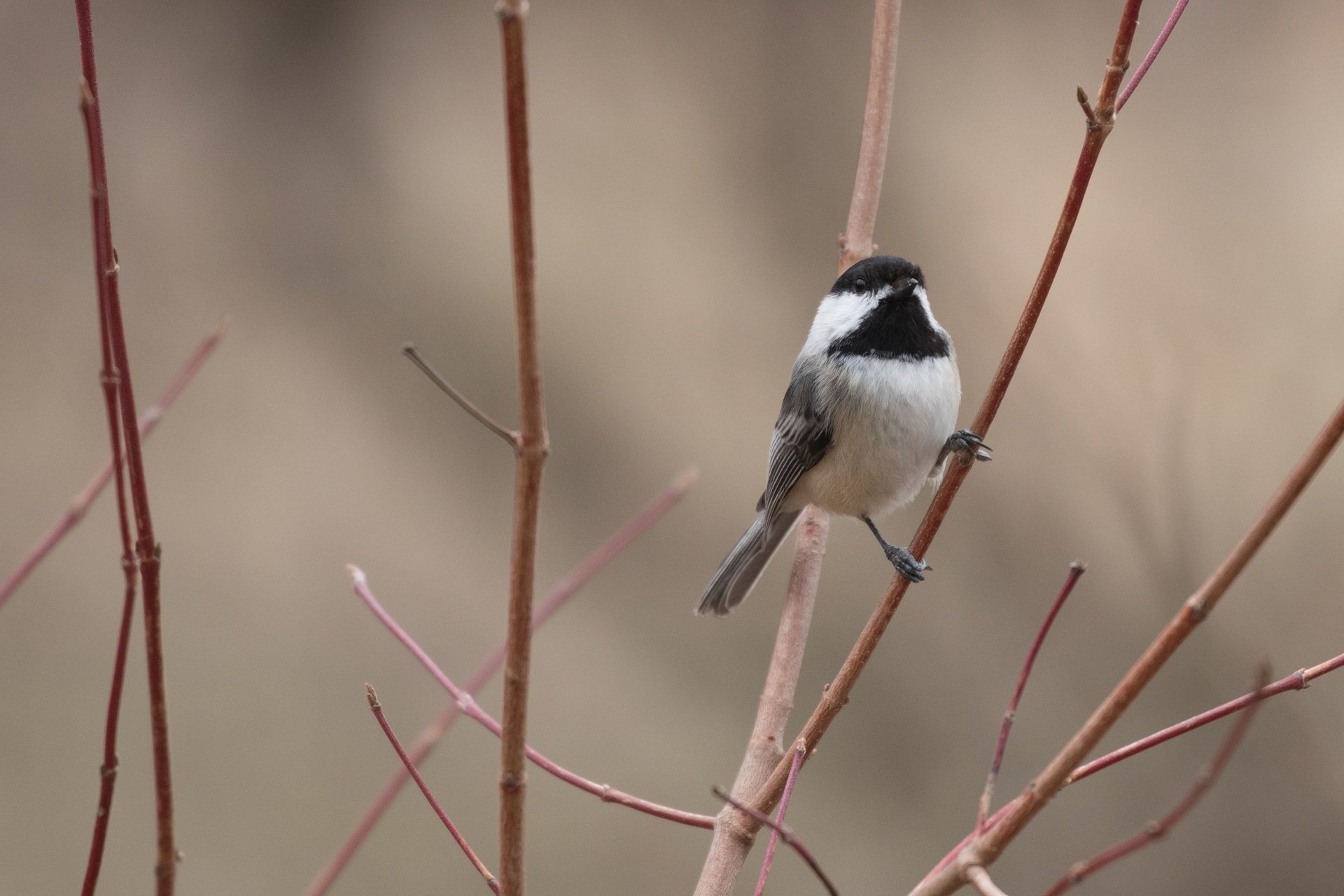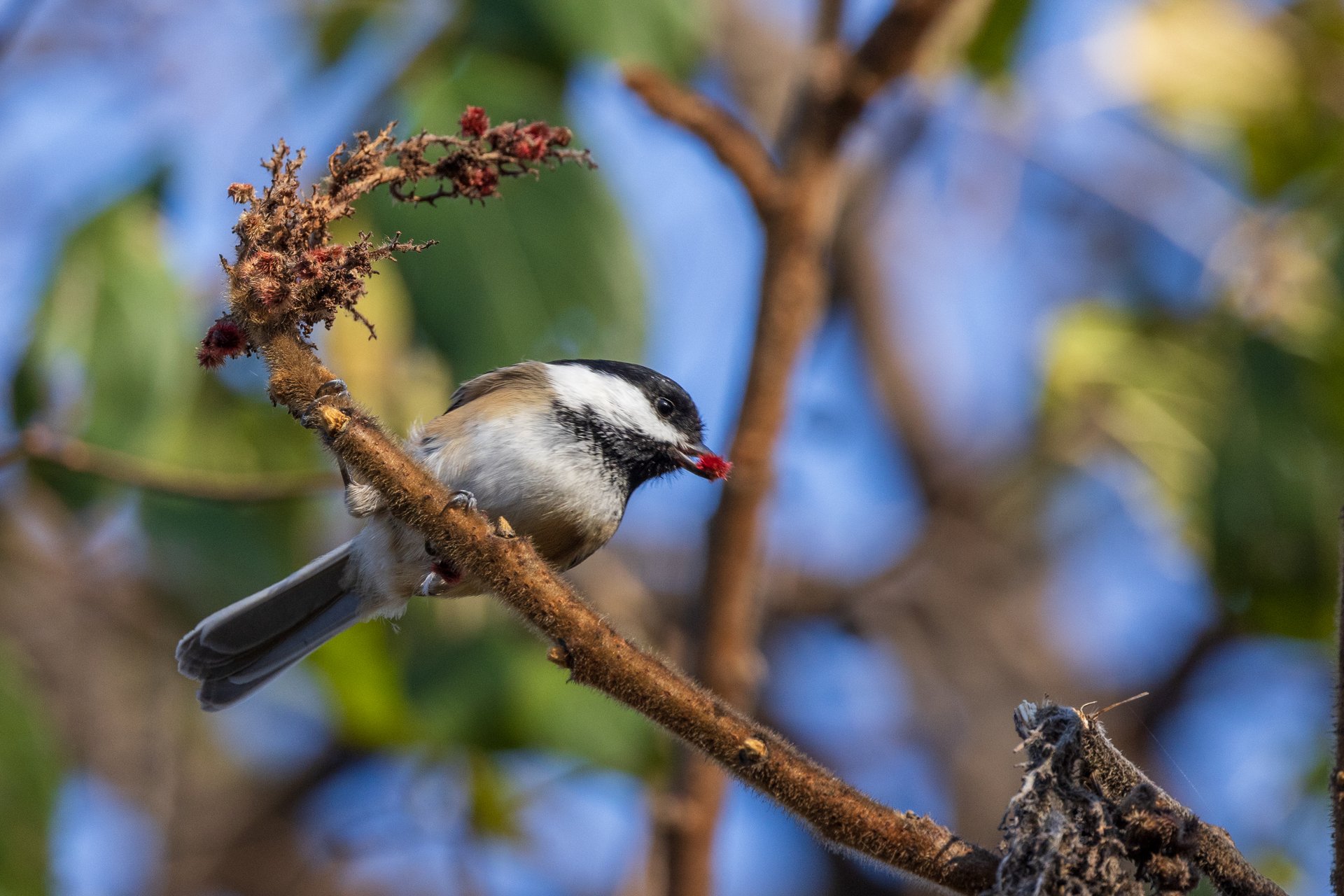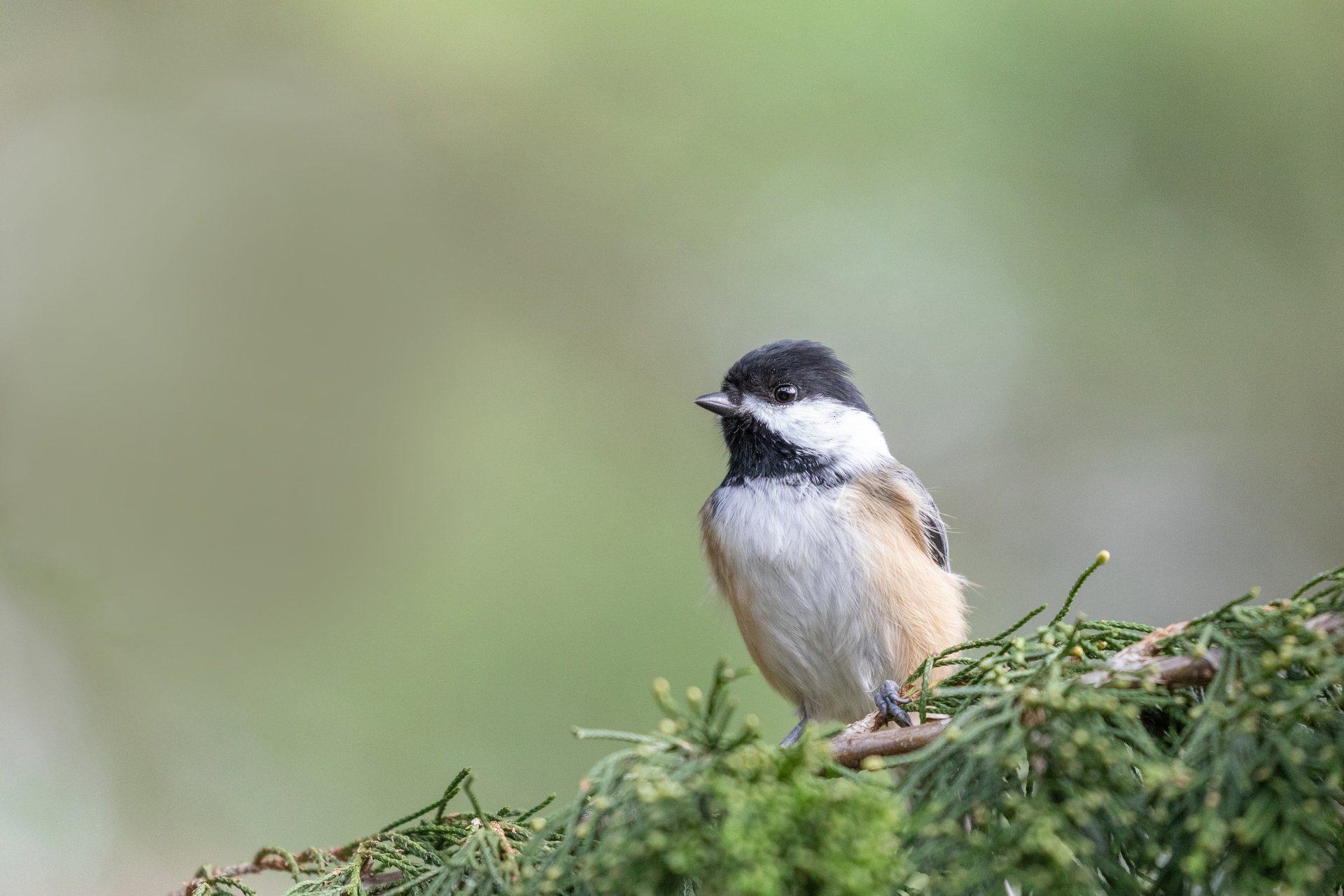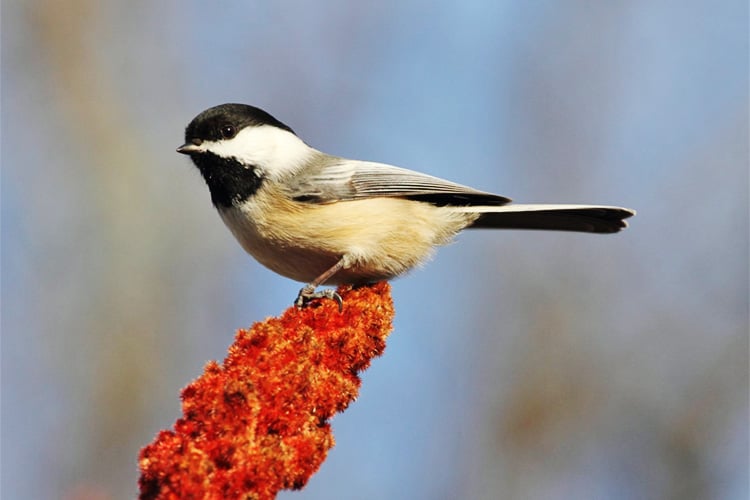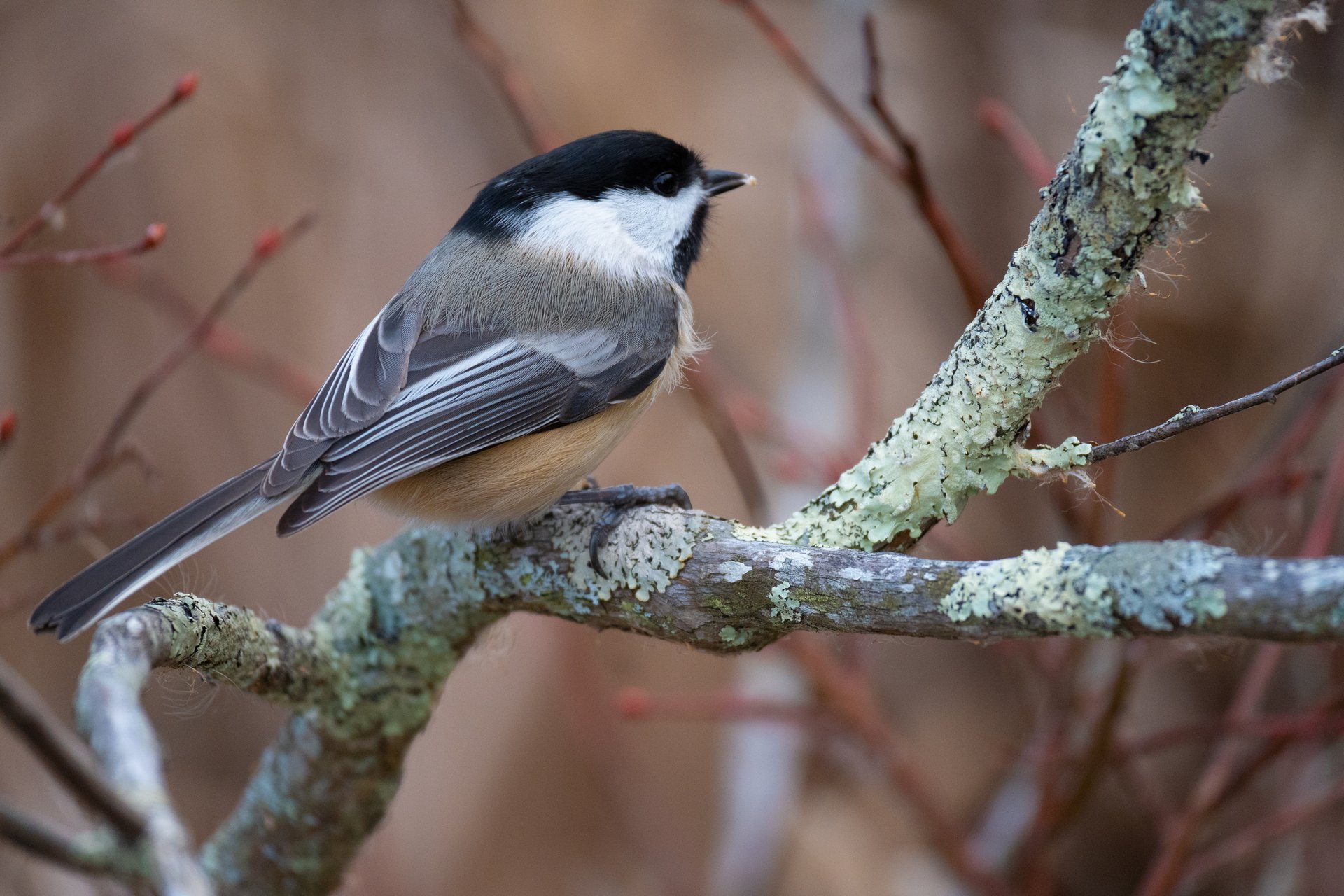Black-capped Chickadees
The humble Black-capped Chickadee is a hardy bird, remaining sprightly and active even in the depths of a New England winter.
The Massachusetts state bird, chickadees can be found in all corners of the Commonwealth wherever there are at least a few trees. Their vocal nature and acrobatic antics make them pleasant and interesting little neighbors.
How to Identify Black-capped Chickadees
Black-capped chickadees are small (just over five inches) and often appear large-headed and somewhat “fluffy.” Their black caps and throats make a stark contrast with their white cheeks, forming a distinctive pattern.
Chickadees are gray above and white to pale brown below; black-capped chickadees often show a significant amount of white on their otherwise gray wings.
Black-capped Chickadee Behavior
Black-capped chickadees flock together and with other birds (especially Nuthatches, Titmice, and Downy Woodpeckers) throughout the winter months.
When feeding, chickadees are curious and active, taking advantage of their strong feet and small size to crawl to the very edges of twigs, sometimes hanging upside down to pick at a promising morsel.
Black-capped Chickadee Call
The song of the chickadee is a clearly whistled two-note swee-tie, with a third note audible at close range: here, swee-tie. The bird gets its name from its call, given in all seasons, a rapid chickadee-dee-dee-dee.
The Black-capped Chickadee is the Massachusetts State Bird
The Black-capped Chickadee was an apt choice to represent the Commonwealth as the state bird of Massachusetts since few species are as at home in the mix of forest, agricultural land, and suburban development that characterizes the Bay State today.
Where Can I See Black-capped Chickadees?
Black-capped chickadees can be found in all corners of the state where there are at least a few trees. Their populations are stable or increasing in all seasons, and are one of the most common and widespread bird species in the state.
Flocks of Black-capped Chickadees are common visitors to backyard bird feeders, where they constantly take seeds away one at a time to be cracked and consumed under the safety of brushy cover.
Because of this, they are a great starting bird to learn to identify for beginning birdwatchers.
How Mass Audubon is Supporting Birds in Massachusetts
Mass Audubon works at our wildlife sanctuaries and beyond to ensure that the nature of Massachusetts continues to thrive. By scientifically monitoring Massachusetts birdlife, Mass Audubon informs important conservation decisions and launches targeted initiatives to help at-risk species. In addition, fostering healthy habitats, supporting native species, and educating people about the importance of nature conservation is critical to our success. Learn more about our work
How You Can Support Birds in Massachusetts
Mass Audubon supports birds like the Black-capped Chickadee every day, but we couldn’t do it without the support of our 160,000+ members.
Help support Black-capped Chickadees, and birds like them, by becoming a member today.
Upcoming Bird Programs
See MoreEarly Bird Walk at Wellfleet Bay
-
Wellfleet Bay Wildlife Sanctuary, South Wellfleet
-
Wednesday, April 30
8:00-10:00am
Adults
Wednesday Morning Birding
-
Newburyport and vicinity
-
Wednesday, April 30
9:30am-12:30pm
Adults
Boardwalk Bird Walk
-
Stony Brook Wildlife Sanctuary, Norfolk
-
Wednesday, April 30
10:00-11:00am
Adults



